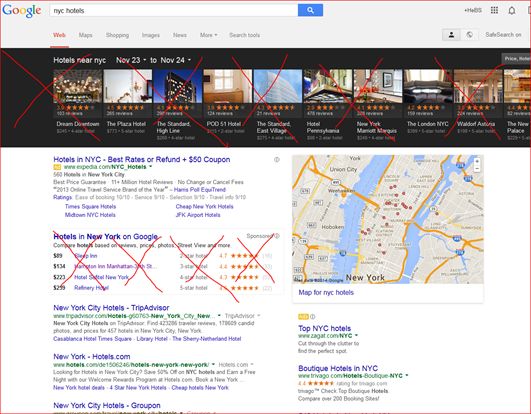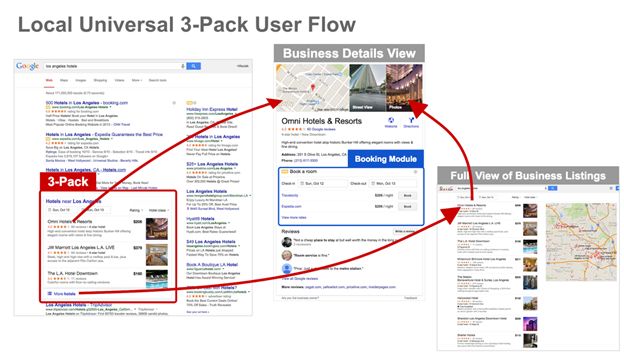By Tim Minerd
Organic search is the leading source of traffic for hotel websites, and over 50% of online revenue in the hospitality industry originates from the search engines. So it’s no secret that Search Engine Optimization (or SEO, the art and science of improving a site’s organic search rankings) is a vital part of every hotel’s marketing toolkit.
As most hotel marketers know, search never stays the same for very long. Google takes over 200 factors into account when crawling, indexing, and ranking sites on the web and rolls out around 500 refreshes and updates to their search algorithms each year. In such a dynamic arena, the best advice for hoteliers who want to rank #1 is to “mind what matters.” Staying abreast of the updates that specifically impact hotel websites is the first step hoteliers can take on the SEO stairway to higher rankings.
For hotels, two of Google’s most recent updates certainly do have an impact on where, exactly, your site will end up in the search results. One update makes it easier for searchers to find hotels by displaying business listings more prominently, while the other helps hotels find searchers by improving the accuracy of geo-targeted AdWords campaigns. The best news for hoteliers is that both updates make Google feel less like a game of roulette, and more like a conversation with your five-star concierge.
Changes to Google Hotel Finder and Local Carousel Results
Google recently made some big changes to the way hotels are displayed on search results pages. For starters, Google’s Hotel Finder commercial unit no longer appears on results pages for search queries like “NYC Hotels.” In addition, the local “carousel” results that appeared at the top of the results page for such queries has also disappeared. Instead, queries like “NYC Hotels” now produce a “3-pack” module that displays three organically-ranked hotel listings. Users can click on one of these results for a full business detail view, or expand the module to quickly navigate to a more comprehensive list of relevant listings.
Here’s what previous results look like, and what has gone missing:

Here’s what the new results look like:
What You Should Do*:
- If you haven’t already, create a Google My Business account.
- Log into Google My Business and ensure your listing is 100% complete and verified.
- Update your Google+ profile on a regular basis. New posts from Google+ can enhance your hotel’s full business detail listing.
*If you have a proactive hotel digital marketing partner, they should be taking care of this for you.
Google AdWords and Google My Business Integration
Google My Business launched in June 2014, providing businesses with a new centralized platform that integrates different products such as Google+, AdWords, and maps. Beginning in November 2014, Google AdWords location extensions began using information pulled from Google My Business accounts, making it more important than ever to ensure Google My Business profiles are 100% complete, verified, and accurate. Doing so will provide the most accurate location information to AdWords, meaning geo-targeted paid search listings are more likely than ever to be served to that potential guest searching their iPhone for a last-minute room right outside your lobby’s front door.
What You Should Do*:
- Link Google My Business with your AdWords account. This is a simple process that allows your hotel location information to appear with your ads and informs AdWords location extensions.
- Ensure your location information is accurate in My Business, including the position of the marker on Google Maps. This will ensure AdWords location extensions are working in your favor, and also helps Google give users accurate driving directions and location information.
*If you have a proactive hotel digital marketing partner, they should be taking care of this for you.
Other must-read SEO articles by HeBS Digital experts:
The Top 10 Questions Hoteliers Should Be Asking Their SEO Vendor
Hotelier’s Action Plan to Benefit from Google’s New “Hummingbird” Algorithm
The End of an Era: Google Says Goodbye to Keyword-Centric SEO
The Undying Importance of SEO: How to Actively Maximize Your Search Engine Presence
A Blueprint to SEO Success: Creating Professional and Engaging Copy for the Hotel Website
Is Hotel SEO Dead? Not By A Long Shot – More Than Half of Your Website’s Revenue Depends on It


